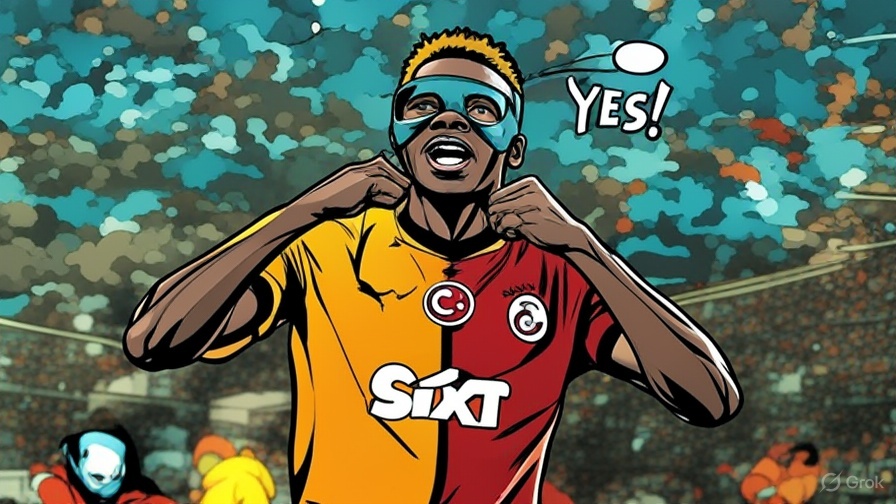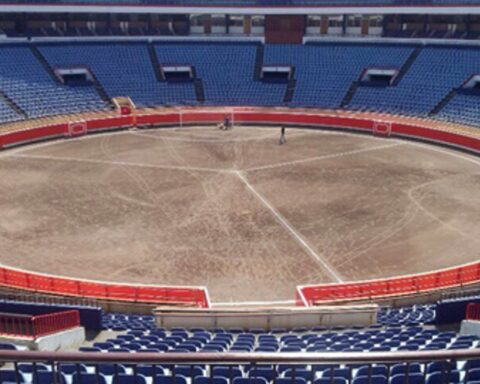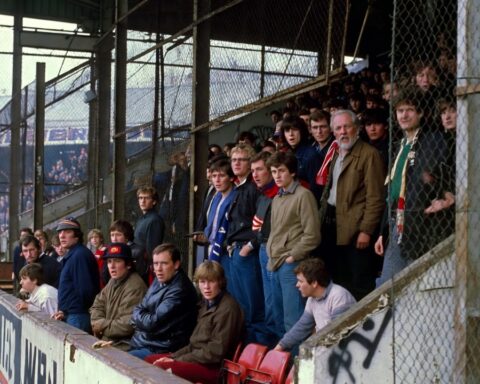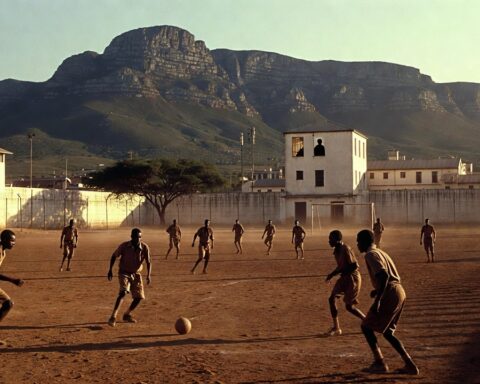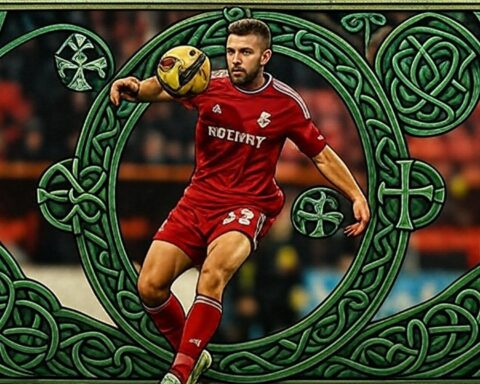There are summer transfer windows, and then there are fever dreams. And in the summer of 2025, Turkish football — led by Galatasaray’s blinding spree — is not so much dreaming as it is hallucinating, arms outstretched, wallet open, chasing immortality through the shopping aisles of Europe’s footballing elite.
Victor Osimhen, that lean Nigerian gunslinger once courted by Europe’s aristocrats, now wears the yellow and red of Galatasaray – this time on a more permanent basis.
Price tag? Reportedly €75 million — a number so absurd it echoes like a lunatic’s laughter through the marble corridors of European football.
How? Why? Where is this money coming from?
You’d be forgiven for thinking it’s all some accounting mirage, an illusion conjured by smoke, mirrors, and the promise of Champions League lights.
But the truth — as it often is in Turkish football — is a volatile cocktail of desperation, ambition, real estate wizardry, and the raw, addictive fix of populist pride.
Chasing Relevance with a Credit Card
Let’s put it plainly: Turkish football is broke. Not figuratively, but eye-wateringly, irreparably in debt. The so-called “Big Four” — Galatasaray, Fenerbahçe, Beşiktaş, and Trabzonspor — have a combined debt ballooning beyond €1.1 billion. Galatasaray alone owes more than €300 million. That’s not a ledger, that’s a suicide note.
But football in Turkey doesn’t operate under the rules of finance. It operates under the rules of faith, nationalism, and a perpetual hunger for prestige.
A club like Galatasaray doesn’t just compete on the pitch — it performs a high-wire act above the Bosphorus, balancing debt, glory, and political capital.
And this summer, they looked down and decided they weren’t afraid of falling anymore.
The Osimhen Gambit
To understand just how seismic the Osimhen deal is, you have to look at context. Napoli’s title-winning talisman in 2022/23, a proven Champions League striker, shunned offers from the Premier League and Saudi Arabia to sign for a club that, for all its proud history, has been wandering the European wilderness for over a decade.
You also have to look at the money. Seventy-five million euros is a record not just for Galatasaray, but for Turkish football. It’s a sum that defies logic — and yet, somehow, the math works. Or appears to.
Because beneath the footballing circus is a deal so lucrative, so quintessentially Turkish in its audacity, that it deserves its own page in the annals of sports finance.
The Florya land flip
Galatasaray’s golden goose comes not from broadcasting rights, ticket sales, or shirt sponsorships. It comes from land — a sprawling, high-value plot in Florya, Istanbul, previously home to the club’s aging training facilities.
In a move that feels part oil-baron, part Monopoly game, Galatasaray entered into a real estate agreement with a powerful local construction firm and the government itself, to redevelop the area into a shiny new commercial and residential complex.
Estimated value? Between €900 million and €1.2 billion.
Galatasaray, in short, sold the future for a shot at now.
They receive their windfall in instalments, front-loaded with enough liquidity to finance transfers, boost wages, and paper over a debt structure that still creaks like a Soviet oil rig.
But who cares about tomorrow when Osimhen scores on a Tuesday night in Madrid?
Football as Political Theatre
In Turkey, football is never just football. It’s a proxy war for politics, class, religion, and identity. Clubs are arms of the state as much as they are sporting entities.
Galatasaray — traditionally the club of Istanbul’s elite — has long enjoyed favour in the corridors of power. But in recent years, its boardroom machinations have evolved into a masterclass in shadow diplomacy.
This new spending spree, bankrolled by land deals and state-aligned developers, is part business, part nationalism, part high-stakes poker.
The state wants prestige. Galatasaray wants trophies. And both are willing to kick the can of fiscal responsibility down the road if it means Turkish clubs are once again feared — or at least noticed — in Europe.
It’s working, in a way. Osimhen is just the crown jewel. Galatasaray are assembling a squad of world-class mercenaries, stitched together by the promise of fat paychecks, endless kebabs, and a shot at cult immortality.
House of Cards (Built on Marble)
But what of the foundations? What happens when the Florya money runs dry?
Financially, Turkish clubs are living a borrowed dream. UEFA’s Financial Fair Play rules — always a bit softer when politics whisper in the right ears — remain a looming threat.
Debt restructuring plans, deferred payments, and creative accounting have turned the Süper Lig into a stage where everyone is bluffing with a losing hand.
Fenerbahçe are not far behind in ambition or delusion. They too are spending beyond their means, chasing Champions League entry like addicts begging for one more hit.
The logic is circular: qualify for Europe to earn money, spend money to qualify. One bad season and it all goes up in smoke.
The Beautiful Madness
Still, there’s a certain poetry to it all. Turkish football has always existed on the edge — hot-blooded, volatile, impossibly passionate.
And now, with Osimhen’s arrival, Galatasaray has delivered its masterstroke, a signing that screams to the world: “We are back and we’re relevant.”
It’s reckless. It’s unsustainable. It might even be catastrophic in the long term.
But it’s also glorious.
Because for one season — maybe two — the Lions of Istanbul will roar louder than ever. They will march into Europe’s cathedrals, not as tourists, but as contenders. They will play with fire, both on and off the pitch.
And when it all burns down — as it almost certainly will — at least they’ll have the stories.
Stories of the time Galatasaray signed Osimhen. Of how they turned real estate into gold.
Of how they took on the gods of football with a maxed-out credit card and a madman’s grin. And in Turkish football, that’s more than enough.


